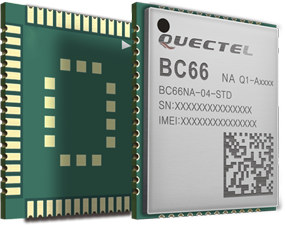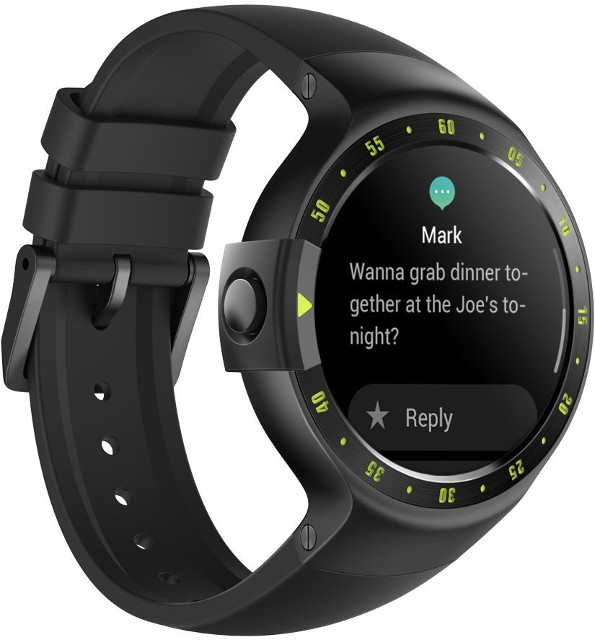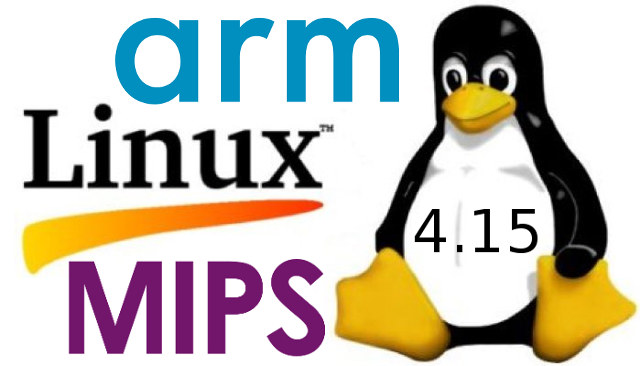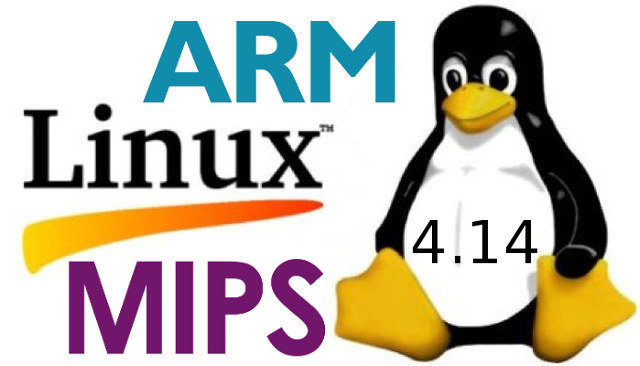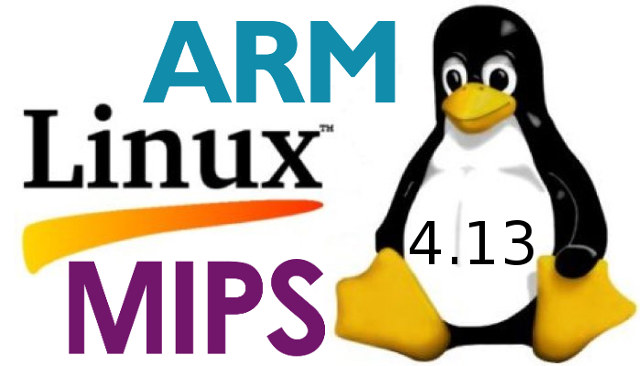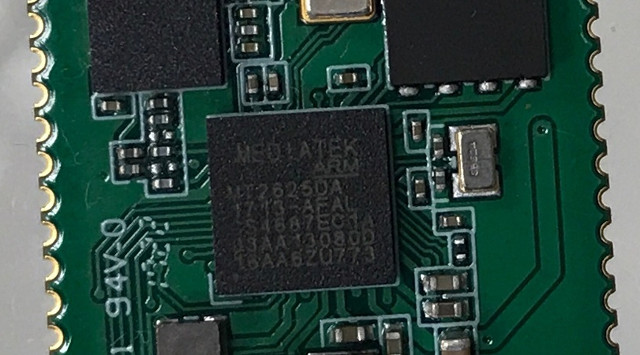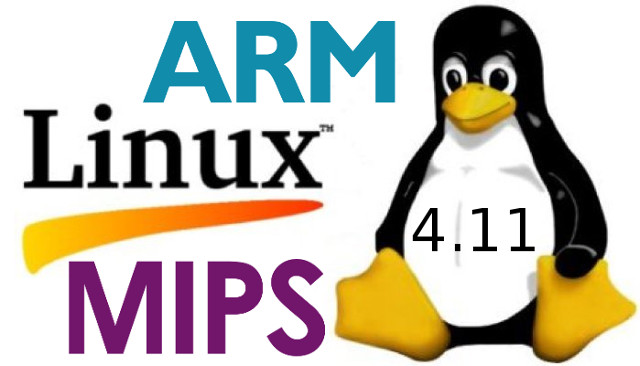Quectel has several LTE IoT modules such as BG96 with NB-IoT + eMTC connectivity, but the company has also a smaller, cheaper NB-IoT only module called Quectel BC66, and Georgi Angelov (Wiz-IO) informed me he implemented Arduino support for the module with BC66-DVK board. Let’s first have a look at BC66 specifications: Frequency Bands Available now – B1/B3/B5/B8/B20 Under development – B2/B12/B13/B17/B18/B19/B25/B26/B28/B66 Output Power – 23dBm ±2dB Sensitivity – -129dBm Data Data Rate Single-Tone: 25.5kbps (DL)/16.7kbps (UL) Multi-Tone: 25.5kbps (DL)/62.5kbps (UL) Protocol Stacks – UDP/TCP/CoAP/LwM2M/SNTP/MQTT/PPP/TLS/DTLS/HTTP/HTTPS/FTP SMS – Text/PDU Mode Interfaces – 1x USIM, 1x PSM _EINT, 3x UARTm 1x ADC, 1x RESET, 1x PWRKEY, 1x NETLIGHT, 1x antenna, 1x SPI, “OpenCPU” version only: 1x I2C, 1x I2S, and configurable GPIO Supply Voltage – 2.1 to 3.63V (3.3 typ.); I/O: 1.8V Power Consumption (Typ.) 3.5μA @PSM 0.29mA @Idle Mode (eDRX=81.92s) 0.43mA @Idle Mode (DRX=2.56s) 110mA @LTE Cat NB1, 23dBm Dimensions – […]
Ticwatch S / E Android Wear Smartwatches are Powered by Mediatek MT2601 SoC
Android Wear is normally used in products from larger companies such as Huawei, LG, or ASUS. In the past, some smaller companies claimed to have designed their own Android Wear smastrwatch with approval from Google, but eventually their products went nowhere, even though one was listed on some sellers as a pre-order. But last summer, Mobvoi launched a Kickstarter campaign for their Ticwatch S & E smartwatches powered by Android Wear, and they managed to raise over $3 millions dollars from close to 20,000 backers with pledges starting at $99. The watches can now be purchased online for $127.99 and up from sites like Amazon, GeekBuying, GearBest, or directly from Mobvoi store. Ticwatch S (Sport) and E (Express) share many of the same features, but Ticwatch E is a bit lighter and more elegant, while Ticwatch S comes with a breathable band design with an integrated GPS antenna. Specifications: SoC […]
Linux 4.15 Release – Main Changes, Arm and MIPS Architectures
Linus Torvald has released Linux 4.15 last Sunday: After a release cycle that was unusual in so many (bad) ways, this last week was really pleasant. Quiet and small, and no last-minute panics, just small fixes for various issues. I never got a feeling that I’d need to extend things by yet another week, and 4.15 looks fine to me. Half the changes in the last week were misc driver stuff (gpu, input, networking) with the other half being a mix of networking, core kernel and arch updates (mainly x86). But all of it is tiny. So at least we had one good week. This obviously was not a pleasant release cycle, with the whole meltdown/spectre thing coming in in the middle of the cycle and not really gelling with our normal release cycle. The extra two weeks were obviously mainly due to that whole timing issue. Also, it is […]
Linux 4.14 Release – Main Changes, ARM & MIPS Architecture
Linus Torvalds has announced the release of Linux 4.14: No surprises this week, although it is probably worth pointing out how the 0day robot has been getting even better (it was very useful before, but Fengguang has been working on making it even better, and reporting the problems it has found). Sure, some of the new reports turned out to be just 0day doing things that just don’t work (ie KASAN with old gcc versions, but also doing things like loading old ISA drivers in situations that just don’t make sense – remember when you couldn’t even ask if the hardware existed or not, and just had to know), but even then it’s been all good. The appended shortlog is obviously only for the (small) haul since rc8, and it really is tiny. Not very many commits, and they are small. The biggest thing that stands out in the diffstat […]
Linux 4.13 Release – Main Changes, ARM & MIPS Architectures
Linus Torvalds has just announced the release of Linux 4.13 and a kidney stone…: So last week was actually somewhat eventful, but not enough to push me to delay 4.13. Most of the changes since rc7 are actually networking fixes, the bulk of them to various drivers. With apologies to the authors of said patches, they don’t look all that interesting (which is definitely exactly what you want just before a release). Details in the appended shortlog. Note that the shortlog below is obviously only since rc7 – the _full_4.13 log is much too big to post and nobody sane would read it. So if you’re interested in all the rest of it, get the git tree and limit the logs to the files you are interested in if you crave details. No, the excitement was largely in the mmu notification layer, where we had a fairly last-minute regression and […]
Mediatek MT2625 NB-IoT SoC is Designed for Cellular IoT Devices working Worldwide
Mediatek has recently unveiled MT2625 SoC based on an ARM Cortex-M core, equipped with an NB-IoT “WorldMode” modem allowing for a single design worldwide, and supporting the latest 3GPP Release 14 (LTE Cat NB2) specification. Mediatek MT2625 specifications: CPU – ARM Cortex-M @ up to 104 MHz with FPU Embedded Memory – 4MB PSRAM Storage – 4MB NOR Flash Connectivity NB-IoT compatible with 3GPP Release 14 Full frequency band (450MHz to 2.1GHz) of 3GPP R13 (NB1) and R14 (NB2) standards Integrated baseband, RF, and modem DSP Peripherals – I2C, I2S, PCM, SDIO, UART Power Supply – Integrated PMU The solution will be found in products for worldwide transportation, municipal use, and consumer products, with a much longer battery life compared to existing devices relying on other 2G/3G/4G standards. According to the press release, one of the first module based on MT2625 has been designed in collaboration with China Mobile, integrates […]
Linux 4.12 Release – Main Changes, ARM & MIPS Architectures
Linus Torvalds has just released Linux 4.12: Things were quite calm this week, so I really didn’t have any real reason to delay the 4.12 release. As mentioned over the various rc announcements, 4.12 is one of the bigger releases historically, and I think only 4.9 ends up having had more commits. And 4.9 was big at least partly because Greg announced it was an LTS kernel. But 4.12 is just plain big. There’s also nothing particularly odd going on in the tree – it’s all just normal development, just more of it that usual. The shortlog below is obviously just the minor changes since rc7 – the whole 4.12 shortlog is much too large to post. In the diff department, 4.12 is also very big, although the reason there isn’t just that there’s a lot of development, we have the added bulk of a lot of new header files […]
Linux 4.11 Release – Main Changes, ARM & MIPS Architecture
Linus Torvalds has just released Linux 4.11: So after that extra week with an rc8, things were pretty calm, and I’m much happier releasing a final 4.11 now. We still had various smaller fixes the last week, but nothing that made me go “hmm..”. Shortlog appended for people who want to peruse the details, but it’s a mix all over, with about half being drivers (networking dominates, but some sound fixlets too), with the rest being some arch updates, generic networking, and filesystem (nfs[d]) fixes. But it’s all really small, which is what I like to see the last week of the release cycle. And with this, the merge window is obviously open. I already have two pull request for 4.12 in my inbox, I expect that overnight I’ll get a lot more. Linux 4.10 added Virtual GPU support, perf c2c’ tool, improved writeback management, a faster initial WiFi connection […]


